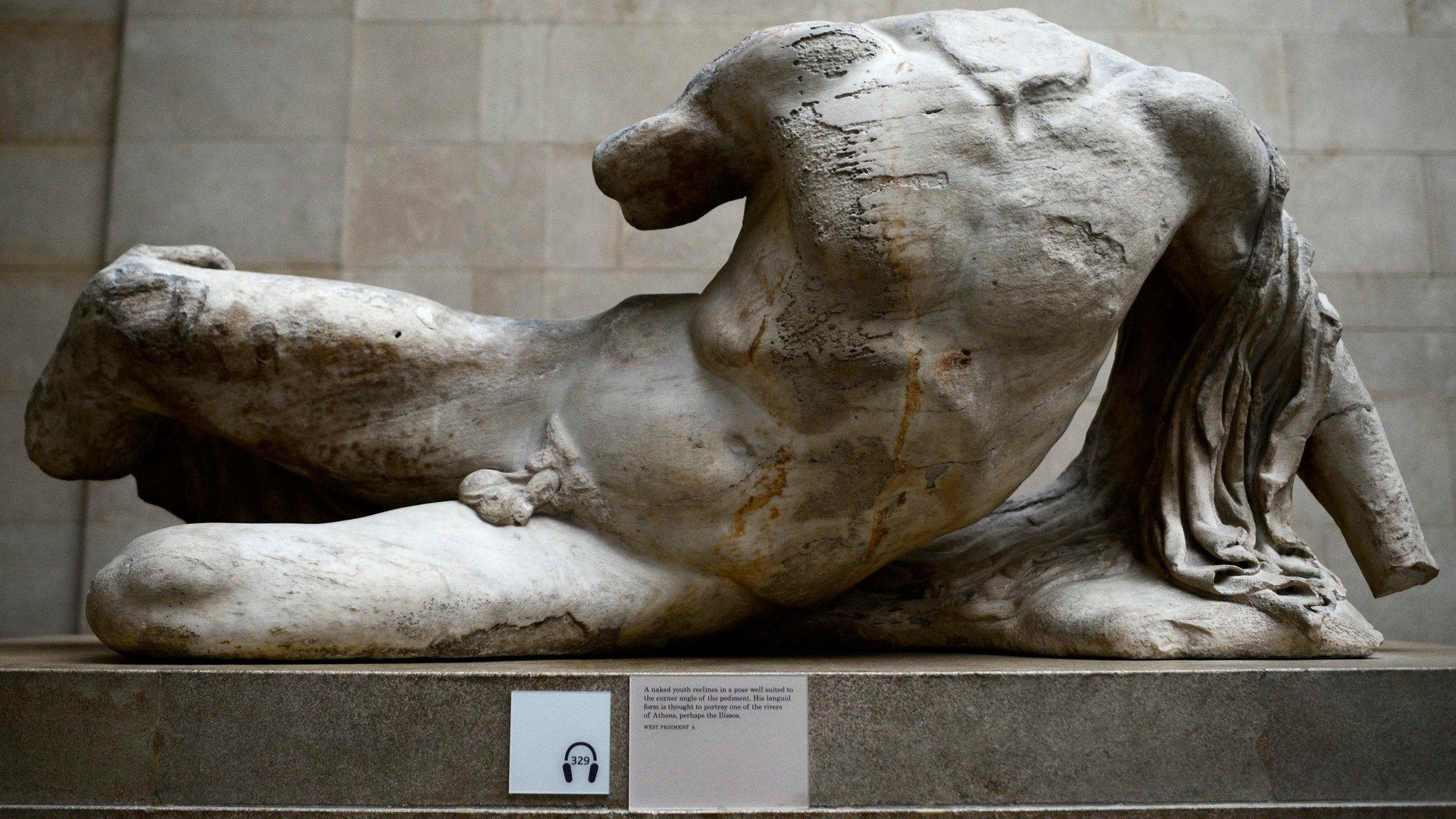Elgin Marbles: Are they safe in Russia?
- Published
BBC News takes a look at the history behind the Elgin Marbles
The British Museum has loaned part of the Elgin Marbles to Russia's Hermitage Gallery in St Petersburg.
The loan marks the first time any of the artefacts from the Greek Parthenon have left the UK since they were brought to London by Lord Elgin at the turn of the 19th Century.
Shrouded in secrecy, the transfer has raised questions about the statue's security amidst fractious relations between the UK and Russia.
The reaction of those campaigning for the return of the Marbles to their original Greek home will also be closely watched.

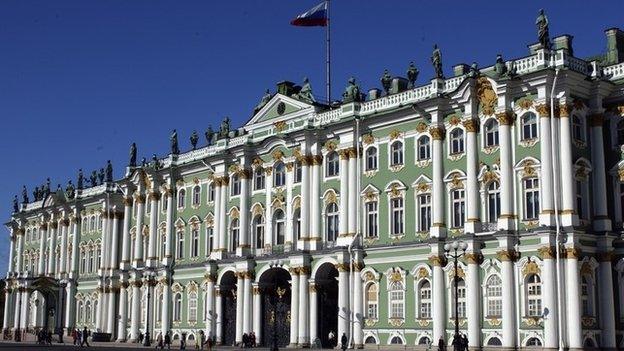
The Hermitage Gallery has enjoyed a close relationship with the British Museum
Why did the Elgin Marbles go to Russia?
According to the British Museum's Neil MacGregor: "The Hermitage had been planning its 250 year anniversary for some time - and they are really the twin of the British Museum - so a couple of years ago the director, Mikhail Piotrovsky, asked if we might make one big loan to mark the fact we are both the great enlightenment museums.
"The trustees said 'yes' and the Hermitage decided what they wanted more than anything else was a symbol of the great shared European heritage and the greatest one of them is one of the Parthenon sculptures."

How was the statue transported to Russia?
According to The Times, which followed the journey of the Marbles to Russia, external, it was carefully boxed up on 20 November after a "good dusting" and kept in storage until Tuesday. It was then loaded on to a passenger plane bound for St Petersburg. Among the passengers, only its courier was aware of the important artefact stowed in the cargo hold.

How did the British Museum manage to keep the loan a secret until after it arrived at the Hermitage Museum?
Neil McGregor said: "The British Museum lends great sculptures all around the world. There are lots of sculptures from the British Museum elsewhere in the world.
"Anyone who has been to the Parthenon gallery in the past week will have seen that it's not on show and we simply said it was being prepared for a display."

Russian-Anglo relations are fraught at the moment. Could Russia refuse to return the statue?
The British Museum will have ensured the standard procedures for loaning works are in place.
It has an official letter from Russia's Ministry of Culture guaranteeing the statue will be under the protection of the Russian Federation.
The UK has made similar assurances to Russia in the past. In 2007, parliament implemented a law to protect Russian paintings from being impounded on British soil because of disputes over ownership.
The change in legislation, external was brought forward at the behest of the Russian culture ministry, which had threatened to block the export of the paintings by Van Gogh and Matisse, amongst others, for an exhibition at the Royal Academy.

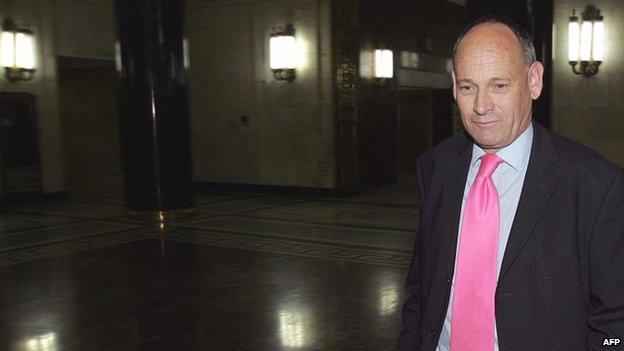
Sir Anthony Brenton was involved in changing laws to allow a cultural exchange between UK and Russia
Is there a law that protects any loaned artwork from seizure in Russia or being tied up in legal action?
Sir Anthony Brenton, who was British Ambassador to Russia during the time of the law change, says not.
Recalling the negotiations, he told the BBC that Russian had given no assurances it would introduce reciprocal legislation for "immunity from seizure".
However, his advice was that Russia is not so law-bound that it would be possible for an artwork to be seized against the wishes of the government.
He added that the government had promised to return the Marbles and so that will happen - particularly because it wants other institutions to lend it artworks in the future.

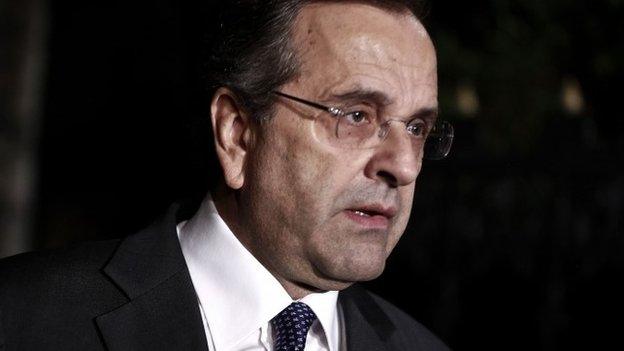
Greek Prime Minister Antonis Samaras has reiterated claims that the Marbles have been looted
Will there be a negative reaction from Greece?
Greek Prime Minister Antonis Samaras pulled no punches in his reaction to the news.
"The decision by the British Museum to give out on loan one of the Parthenon sculptures for exhibit in St Petersburg is an affront to the Greek people," he said.
"The Parthenon and its Marbles have been looted. The sculptures are priceless. We Greeks are one with our history and civilization, which cannot be broken up, loaned out, or conceded.
Speaking earlier on BBC Radio 4, the British Museum's Neil McGregor had expressed his hopes for a more positive response.
"I hope that they will be very pleased that a huge new public can engage with the great achievements of ancient Greece.
"People who will never be able to come to Athens or London will now, here in Russia, understand something of those great achievements in Greek civilisation."
But the chairman of the Marbles Reunited campaign, Liberal Democrat MP Andrew George, said: "Neil MacGregor justifies his decision by claiming that these sculptures should be 'shared and enjoyed by as many people... as possible'.
"But these sculptures have not been 'shared and enjoyed' by the Greeks for over 200 years, since they were purloined in a dodgy deal by Lord Elgin during a period when Greece was occupied by the Ottomans."
- Published4 December 2024
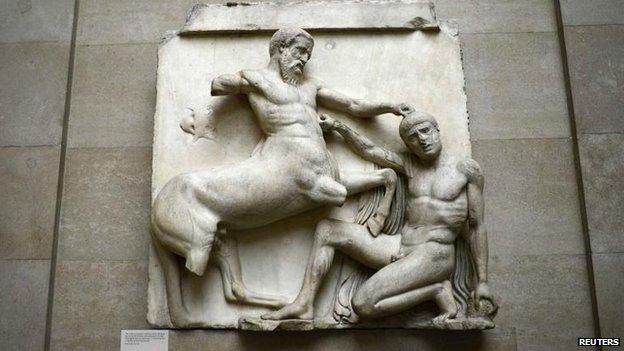
- Published5 December 2014
